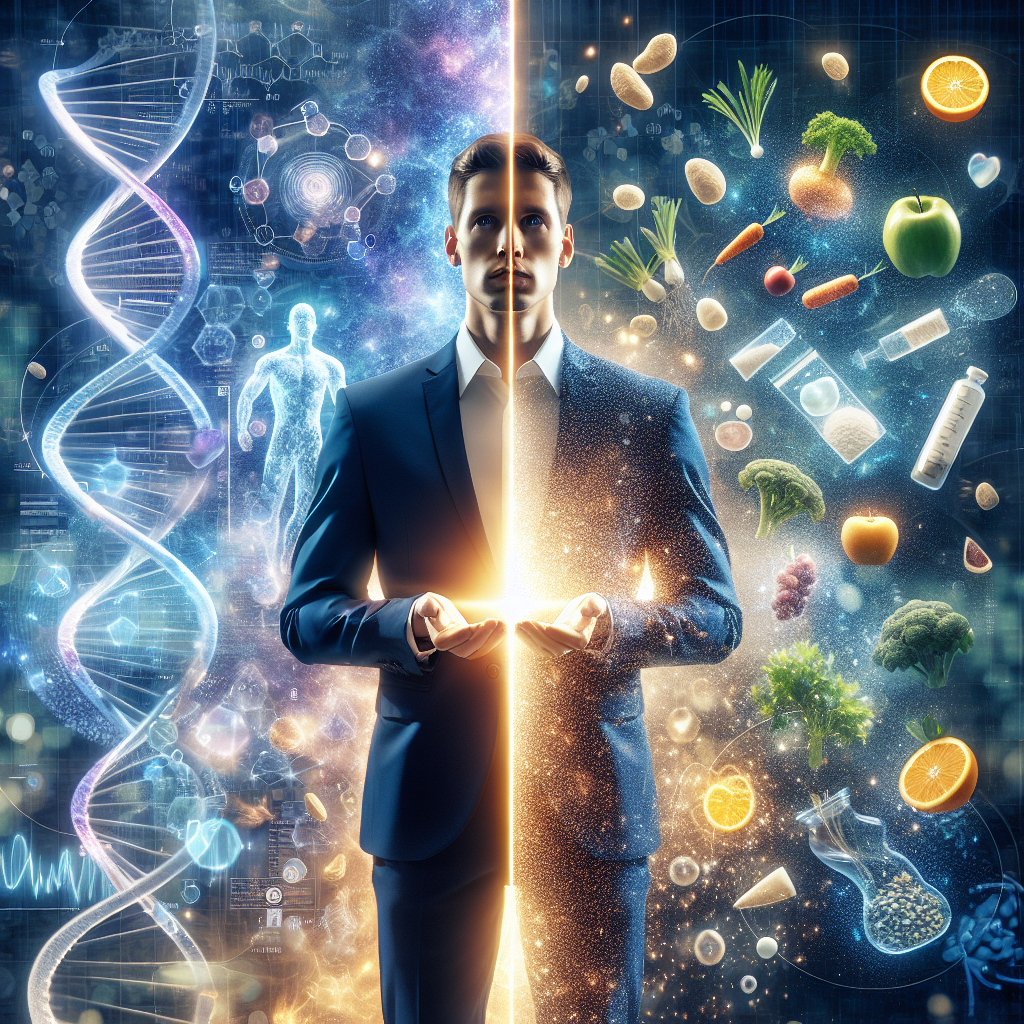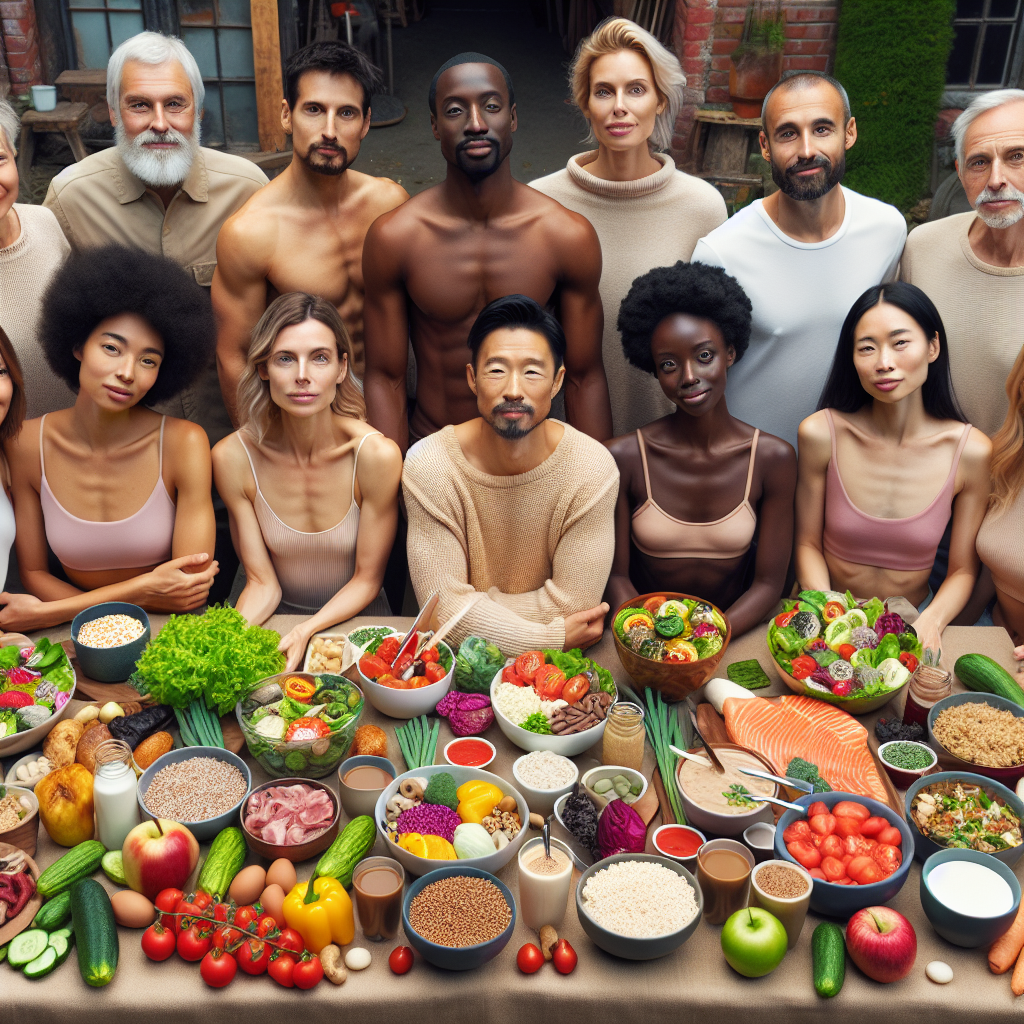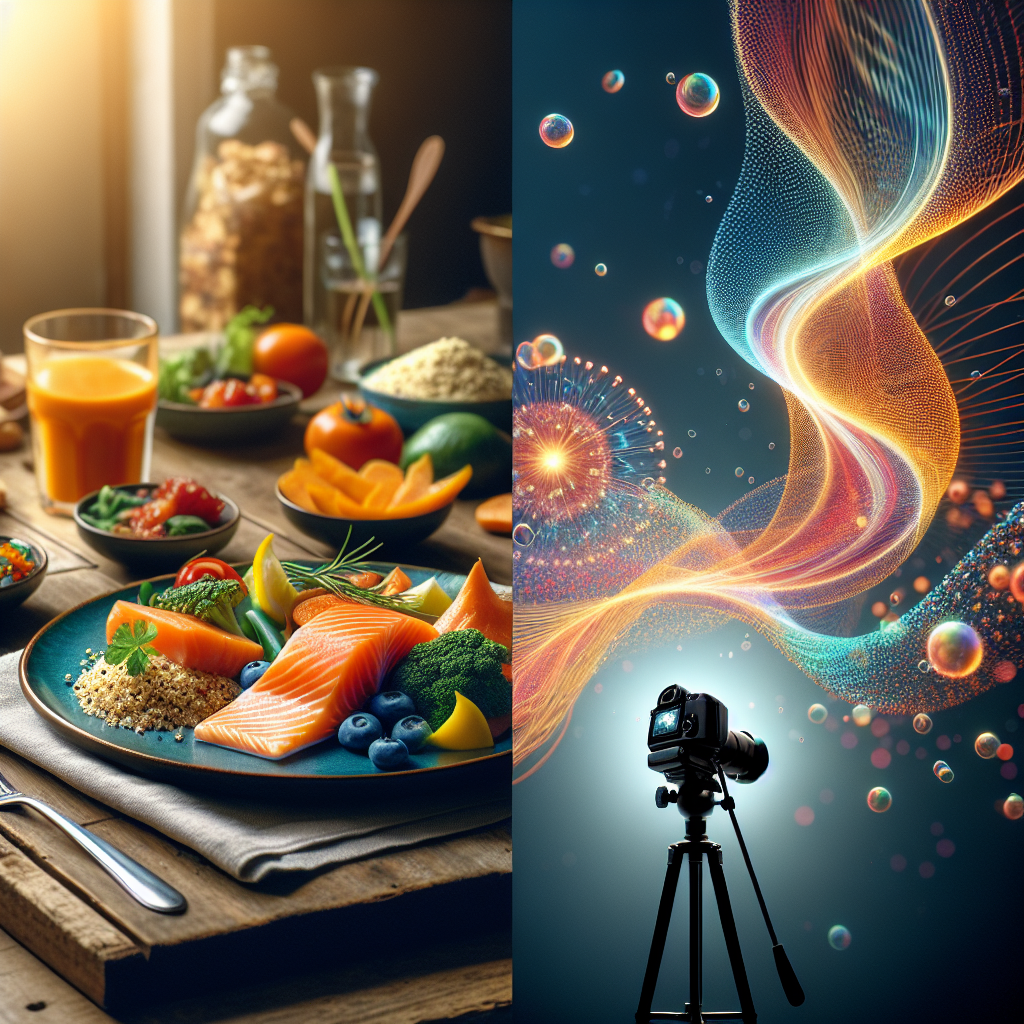Picture this: you wake up feeling slightly off-balance, maybe a little sluggish, perhaps with digestive discomfort. Your first instinct might be to reach for over-the-counter medication. But what if the solution was sitting in your kitchen cabinet all along? What if that ginger root, those dark leafy greens, or that jar of turmeric could be exactly what your body needs?
This isn’t some new-age fantasy. For thousands of years, cultures around the world have understood something profound: food isn’t just fuel—it’s medicine. From the bustling markets of ancient Egypt to the spice-filled kitchens of traditional Chinese homes, our ancestors knew that what we eat directly shapes how we feel, how we heal, and how we thrive. Today, as chronic diseases continue to rise despite medical advances, we’re rediscovering this timeless wisdom. The concept of food as medicine is experiencing a powerful resurgence, and it’s transforming how we think about health and wellness.
Ancient Wisdom That Still Speaks Truth
Long before pharmaceutical companies existed, healers across the globe were prescribing dietary remedies. In India, Ayurvedic practitioners classified foods based on their qualities—warming or cooling, heavy or light—and matched them to individual body types called doshas. They understood that the same food could heal one person while causing imbalance in another.
Meanwhile, in China, Traditional Chinese Medicine developed an equally sophisticated system. Practitioners categorized foods according to the Five Elements theory—wood, fire, earth, metal, and water—each corresponding to different organs and seasonal energies. They recognized that eating bitter greens in spring supported liver health, while warming soups in winter nourished kidney energy. This wasn’t superstition; it was careful observation refined over millennia.
The Mediterranean cultures took a different but equally powerful approach. Rather than complex classification systems, they emphasized simplicity: fresh vegetables, olive oil, whole grains, legumes, and fish. Meals were social events, eaten slowly with family and friends. This seemingly simple practice created one of the healthiest dietary patterns ever documented.
What’s remarkable is how these diverse traditions share common threads. All emphasized eating with the seasons, choosing whole foods over processed ones, and understanding that food affects not just the body but the mind and spirit too. At HerbalsZen, we’ve built our entire philosophy on this foundation, particularly drawing from the depth of Chinese medicine’s Five Elements theory and the principles of Yin-Yang balance. These ancient frameworks aren’t relics of the past—they’re sophisticated systems for understanding how food creates harmony or discord in our bodies.
When Ancient Wisdom Meets Modern Science
For decades, Western medicine dismissed traditional dietary wisdom as folklore. But something fascinating has happened in recent years: science is catching up, and the results are stunning.
Study after study confirms what traditional healers always knew. Research published in major medical journals shows that the Mediterranean diet reduces cardiovascular events by 28% in men. The anti-inflammatory compounds in turmeric rival some pharmaceutical medications for reducing inflammation markers. Fermented foods, celebrated in Korean, Japanese, and Eastern European traditions, are now proven to support gut microbiome diversity, which influences everything from digestion to mood to immune function.
Consider the humble ginger root. Traditional Chinese Medicine has prescribed it for nausea and digestive upset for over 2,000 years. Modern research now confirms it contains gingerols and shogaols—compounds that reduce inflammation, settle the stomach, and even show promise in managing arthritis pain. This isn’t coincidence; it’s validation.
The evidence keeps mounting. Whole grains reduce type 2 diabetes risk. Dark leafy greens protect cognitive function as we age. Berries packed with anthocyanins combat oxidative stress at the cellular level. Garlic, revered in ancient Egypt and used in Mediterranean cooking for millennia, demonstrably lowers blood pressure and cholesterol.
What excites us at HerbalsZen is how this evidence-based innovation confirms traditional practices. We’re not choosing between ancient wisdom and modern science—we’re watching them converge. The anti-inflammatory diet that doctors now recommend looks remarkably similar to what Traditional Chinese Medicine practitioners have prescribed for centuries. The gut-brain connection that researchers are just beginning to understand? Eastern medicine has recognized this link for thousands of years, calling it the interplay between the spleen, stomach, and spirit.
This validation matters because it transforms food as medicine from abstract philosophy into practical prevention. When you understand that chronic diseases—heart disease, diabetes, autoimmune conditions—often stem from chronic inflammation, and that food can either fuel or fight that inflammation, suddenly your daily food choices carry immense power.
The Lost Art of Paying Attention
Here’s something our ancestors understood that we’ve largely forgotten: how we eat matters as much as what we eat. They didn’t have a term for it, but they practiced what we now call mindful eating.
In traditional cultures, meals were rituals. Families gathered together. Food was blessed or offered thanks. People ate slowly, savoring flavors and textures. They noticed how different foods made them feel—energized or sluggish, calm or restless. This wasn’t just cultural practice; it was information gathering.
Mindful eating invites us to reclaim this awareness. It means noticing the vibrant colors on your plate, the aroma of herbs and spices, the crunch of fresh vegetables. It means chewing thoroughly and eating without distractions—no phones, no television, no hurried standing at the counter. It means listening to your body’s signals of hunger and fullness, satisfaction and discomfort.
This practice bridges ancient philosophy and modern wellness trends beautifully. When you eat mindfully, you naturally begin to notice patterns. Maybe dairy leaves you feeling congested. Perhaps raw foods in winter make you feel cold and depleted. You might discover that certain meals give you sustained energy while others cause blood sugar crashes.
This awareness is the foundation of using food as medicine. You can’t personalize your diet if you’re not paying attention to how your body responds. Mindful eating transforms every meal into an opportunity for learning what your unique body needs. It honors the Eastern medicine principle that you are your own best hearer—you just need to listen.
Your Unique Body, Your Unique Needs
This brings us to perhaps the most important concept: personalized nutrition. Traditional healers never prescribed the same dietary remedy to everyone because they understood a fundamental truth—we’re all different.
Your friend might thrive on raw salads and smoothies while you feel cold and bloated eating the same foods. Someone else might need warming spices and cooked vegetables. These aren’t random differences; they reflect unique body constitutions, what Traditional Chinese Medicine calls your Qi energy patterns and constitutional balance.
Modern genetics research confirms this diversity. We now know that people metabolize caffeine differently, process carbohydrates with varying efficiency, and require different nutrient ratios based on their genetic makeup. Some people have genetic variations that affect how they absorb iron, vitamin D, or omega-3 fatty acids. One person’s superfood might be another person’s digestive nightmare.
This is where innovation becomes truly exciting. At HerbalsZen, we’ve developed EastChi AI to bridge the gap between ancient constitutional typing and modern nutritional science. Our approach analyzes your specific body constitution—whether you tend toward cold or heat, dampness or dryness, excess or deficiency—and creates nutrition plans tailored to restore your unique balance.
Think about it: Traditional Chinese Medicine practitioners spent years training to assess constitutions through pulse diagnosis, tongue examination, and careful questioning. Now, AI technology can process this wisdom alongside your health history, symptoms, and goals to deliver personalized recommendations. It’s not replacing traditional wisdom—it’s making that wisdom accessible and scalable.
Personalized nutrition means understanding that your colleague’s keto success story or your sister’s vegan transformation might not be your path. It means recognizing that the “healthiest” diet is the one that creates balance in your specific body. Learn more about why your nutritional needs differ from everyone else’s. Maybe you need more protein to support your active lifestyle and fast metabolism. Perhaps your sluggish digestion requires bitter foods and digestive herbs. Your chronic stress might call for adaptogenic mushrooms and magnesium-rich foods.
This personalization honors both traditional practices that emphasized individual differences and modern nutritional science that proves we metabolize, digest, and respond to foods uniquely. It puts you in control of your health in a way that generic diet plans never could.
Eating for the Planet, Healing Ourselves
There’s another dimension to food as medicine that ancient cultures intuitively understood: sustainability. When you eat local, seasonal foods, you’re not just following a trendy wellness practice—you’re participating in a tradition that sustained human health for millennia.
Traditional diets were inherently sustainable. People ate what grew nearby, preserved foods for winter, and wasted nothing. They consumed animals nose-to-tail, fermented vegetables to extend their shelf life, and celebrated seasonal abundance. This wasn’t about being environmentally conscious in the modern sense—it was about survival and common sense.
Today, we’re rediscovering why this matters for personal health too. Foods eaten in season are nutritionally superior, often containing higher levels of vitamins, minerals, and antioxidants. Your body seems to intuitively need cooling foods in summer and warming, nourishing foods in winter—exactly what grows naturally in those seasons. There’s wisdom in this alignment.
Sustainable nutrition also means choosing whole foods over ultra-processed products, reducing meat consumption in favor of plant-based proteins, and supporting regenerative agriculture. These choices reduce environmental impact while dramatically improving health outcomes. Studies consistently show that diets rich in minimally processed plant foods reduce chronic disease risk while requiring fewer resources to produce.
At HerbalsZen, we see sustainable nutrition as inseparable from holistic health. You can’t truly heal yourself while harming the environment that sustains you. The ancient principle of harmony—living in balance with nature—isn’t just philosophical; it’s practical medicine for both personal and planetary health.
Taking Control of Your Health Story
Understanding food as medicine does something profound: it empowers you. Instead of feeling helpless in the face of health challenges, you realize you make medicine-level decisions three times a day, every day.
This doesn’t mean abandoning conventional medicine. Rather, it means recognizing that informed dietary choices work alongside medical treatments to create comprehensive healing. Your doctor might prescribe medication for high blood pressure, but your daily choice to embrace a Mediterranean-style diet, rich in vegetables and healthy fats, amplifies that treatment’s effectiveness. You’re not choosing between Eastern and Western approaches—you’re integrating them.
Consider someone managing type 2 diabetes. Medication regulates blood sugar, but food choices—emphasizing fiber-rich whole grains, balancing proteins with vegetables, avoiding refined sugars—can sometimes reduce medication needs over time. Someone dealing with chronic inflammation might combine prescribed treatments with anti-inflammatory foods like fatty fish, leafy greens, and turmeric. The synergy creates better outcomes than either approach alone.
This integrated approach reflects Eastern medicine’s holistic view: you’re not just treating symptoms but addressing root causes and supporting your body’s innate healing capacity. Your physical symptoms connect to your emotional well-being, your stress levels, your sleep quality, and your diet. Everything intertwines.
Taking control also means becoming curious and educated. Learn which foods are naturally anti-inflammatory. Understand how blood sugar impacts energy and mood. Discover which herbs and spices offer medicinal benefits. Experiment with eliminating foods that might be causing problems. Notice patterns in how you feel.
This journey isn’t about perfection or rigid rules. It’s about gradually building awareness, making informed choices more often, and trusting your body’s feedback. It’s about recognizing that small, consistent changes accumulate into transformative health improvements.
A Future Built on Harmony
So where does this leave us? Standing at a fascinating crossroads where ancient wisdom and modern science are finally shaking hands and agreeing.
The future of health doesn’t look like choosing between your doctor’s prescription and your grandmother’s chicken soup recipe. It looks like integrating both. It’s personalized nutrition plans informed by genetic testing and constitutional typing. It’s mindful eating practices supported by research on gut-brain connection. It’s sustainable food choices that heal both bodies and ecosystems.
Imagine a healthcare system where your doctor asks detailed questions about your diet, energy patterns, and digestion. Where nutrition education is as fundamental as learning to read. Where technology helps decode your body’s unique needs and provides personalized guidance that honors both traditional wisdom and current science. Where preventing disease through food is valued as highly as treating disease with medication.
This isn’t fantasy—it’s already emerging. Progressive medical schools now teach culinary medicine. Hospitals are hiring nutrition specialists. Insurance companies are beginning to cover nutrition counseling. Technology platforms are making personalized dietary guidance accessible to everyone, not just those who can afford private consultations with TCM practitioners or functional medicine doctors.
At HerbalsZen, this is exactly the future we’re building. We believe that everyone deserves access to the profound wisdom of traditional Chinese medicine, enhanced by modern technology and validated by contemporary research. We believe your kitchen truly can be your best pharmacy if you understand how to use it.
The most beautiful part? This transformation doesn’t require expensive supplements or complicated protocols. It starts with simple, harmonious choices: eating more whole foods, choosing seasonal produce, paying attention to how different foods affect your energy and mood, and gradually personalizing your diet to support your unique body.
Your ancestors knew something precious: that food is sacred, powerful, and healing. Modern science is confirming what they understood intuitively. Now it’s your turn to reclaim this wisdom, one mindful meal at a time. Your kitchen is waiting to become your pharmacy. The prescription is written in ancient texts and modern research papers alike. All you need to do is start cooking, eating, and healing.




